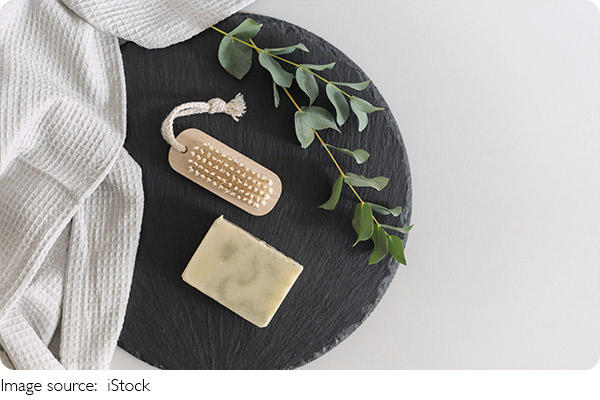How Good is Soap for Skin

Welcome Lykkers! Cleansing your face is a crucial step in any skincare routine, but whether soap is the right choice for regular face washing depends on several factors, including your skin type, the soap used, and how your skin responds to it.
While soap has traditionally been a go-to cleansing product, modern dermatology has raised concerns about its impact on the delicate skin of the face.
The Case for Using Soap
1. Effective Cleaning:
Soap removes dirt, sweat, excess oil, and makeup from the skin, ensuring that pores remain unclogged. For those with oily or acne-prone skin, a gentle soap can help regulate oil production and reduce the likelihood of breakouts.
2. Convenience and Affordability:
Minimalist design simplifies your space by focusing on essentials, neutral tones, and natural light—creating a calm and stylish home.
6 Must-Visit Spots for Festival Decorations in New York City!
Curious about the rich history and deep symbolism of Christmas trees? Discover what each decoration truly represents!
Is A Luxe Vacation Worth The Cost? Explore The True Value.
Stop Shivering! Master the Art of Choosing Warm Clothing Now!
The Secret to Perfect New Year Gifting: Unique Picks for Everyone!
Bar soaps are easily accessible and cost-effective compared to specialized facial cleansers. They are also versatile, serving multiple cleansing purposes.
3. Variety of Options:
Not all soaps are created equal. Some modern formulations are designed specifically for facial skin, incorporating moisturizing and soothing ingredients like glycerin, aloe vera, or essential oils.
Why Soap Might Not Be Ideal for Your Face?
1. pH Imbalance:
Traditional soaps tend to have a high pH, which can disrupt the skin’s natural pH balance (around 4.5 to 5.5). This disruption weakens the skin's barrier function, leading to dryness, irritation, and increased sensitivity.
2. Stripping Natural Oils:
Many soaps contain harsh surfactants that removes the natural oils from the skin. While this might seem beneficial for oily skin, it can lead to overproduction of sebum as the skin tries to compensate, worsening oiliness or causing breakouts.
3. Dryness and Irritation:
People with dry or sensitive skin often experience tightness, flaking, and redness after using soap. Ingredients like fragrances, alcohol, or synthetic additives can exacerbate these issues.
4. Not Suitable for All Skin Types:
While some soaps are gentle, many are too harsh for facial skin, especially for those with conditions like eczema, rosacea, or psoriasis.
What Dermatologists Recommend?
Dermatologists generally advise against using traditional soaps for washing your face. Instead, they recommend mild cleansers tailored to your skin type. These alternatives are designed to cleanse without compromising the skin’s natural barrier or causing irritation.
Soap no Facewash - Which is better? - Dr. Shuba Dharmana
Video by Doctors’ Circle World’s largest Health Platform
Alternatives to Soap for Face Washing
1. Gentle Cleansers: Look for products labeled “soap-free” or designed for sensitive skin. Ingredients like hyaluronic acid, ceramides, or niacinamide help cleanse while retaining moisture.
2. Micellar Water: Ideal for removing makeup and dirt without rinsing, micellar water is gentle and hydrating.
3. Oil Cleansers: These dissolve makeup and impurities while nourishing the skin, making them suitable for dry and sensitive skin types.
Tips for Healthy Face Washing
1. Choose the Right Product: Opt for products that match your skin type. For example, gel-based cleansers work well for oily skin, while cream-based ones suit dry skin.
2. Don’t Overwash: Washing your face twice daily is sufficient. Overwashing can remove the skin of essential oils, leading to dryness or irritation.
3. Use Lukewarm Water: Avoid hot water, as it can damage the skin’s barrier and cause dryness.
4. Pat Dry: Gently pat your face with a clean towel instead of rubbing to avoid irritation.

While soap may be effective in cleansing, its potential to disrupt the skin’s natural balance often outweighs the benefits, especially when used on the face. For optimal skin health, choose gentle, pH-balanced alternatives that cater to your specific skin type. A well-chosen facial cleanser, paired with a consistent skincare routine, can leave your skin feeling clean, nourished, and healthy without the drawbacks of traditional soap.

 · Lifestyle Team
· Lifestyle Team